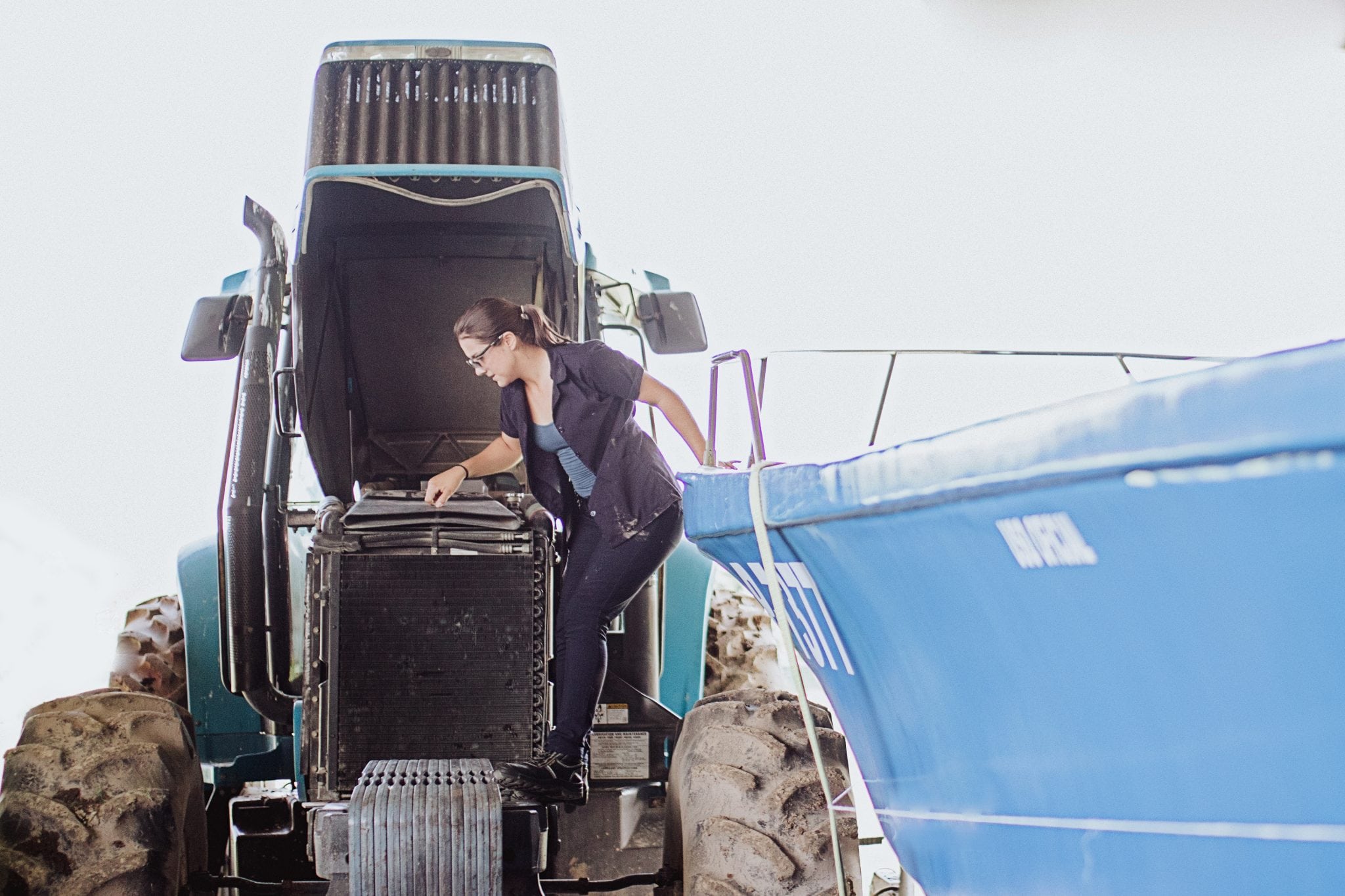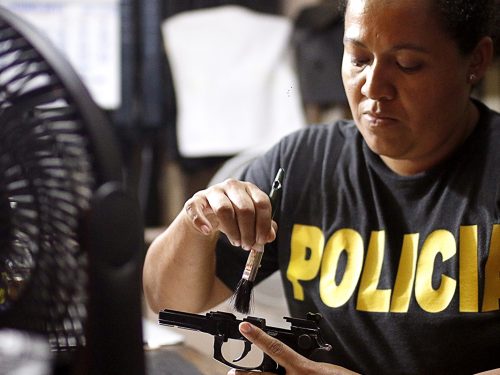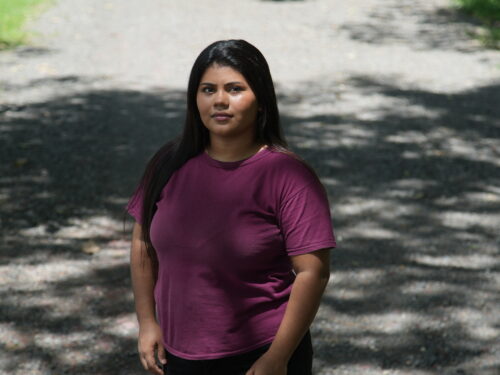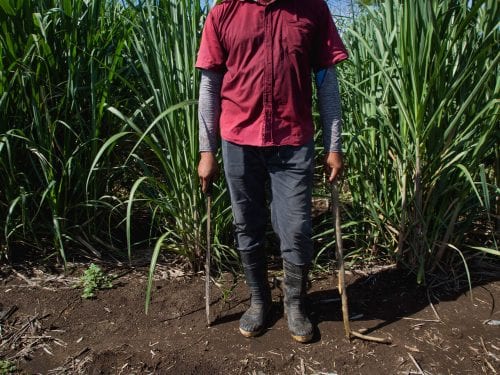
Ever since I was little I was told that I was free to choose what I wanted to do. I was told that picking a college major wasn’t contingent upon my gender, my social status, or where I was born. When I grew up I realized that the world is different from what it should be, that there are jobs that have a “female” or “male” label. When I moved to Guanacaste, I began live this through the stories of Guanacastecan women.
The sociologist María José Chaves of CEFEMINA (in English, the Feminist Center for Information and Action) tells me that these stereotypes are generally attributed to chauvinism, but that all of us create a culture: that all of us are a little responsible for what’s going on.
“If we continue segregating women and men in specific jobs it’s because we aren’t doing anything to change it,” she told me when I met with her to determine which was the best way to portray this reality in photographs.
With her, we decided to show how there are women in Guanacaste who work in traditionally masculine jobs. We want Guanacastecan women to find new models to follow and for them to feel invited to work in whatever they want: that stereotypes don’t factor into their decisions, as they didn’t in mine.
That more women pursue careers that are usually filled with men isn’t just an individual benefit; it’s a collective one. According to a study published by the University of Stanford in 2016, if women participate the same way men do in the economy, a community’s annual economic growth could increase by as much as 26%.
“The most innovative and best paid jobs are the ones our youth are turning their backs on,” says the Minister of the Condition of the Women, Alejandra Mora Mora, on the National Institute for Women’s website.
If we want more women working in science, technology, engineering, and mathematics, educational systems must promote access for women both in the academic and professional realms, states a study by the International Work Organization on women’s work in 2016.
Chaves feels that we can’t leave the responsibility to the institutions that train professionals. “You don’t need a sign that reads ‘No women allowed’ in an appliance repair shop for women not to feel welcome. Just a colleague’s glance, friends’ comments, or a family’s jokes are enough.”

Maria Murillo (21) has been studying agricultural mechanics at the INA (in English National Learning Institute) in Liberia. She’s from a home with brave parents and many siblings (five brothers and two sisters). She’s not afraid of strength or hard work. She’s driven cars since she was a child, and she loves motorcycles and tractors. In class she has always felt supported. She feels like part of the group. Her classmates are all men and they treat her as an equal. But the working world isn’t the same, she says.When I asked her what she wanted to do after graduation, she had to think. One of her classmates, Adrián, said “maybe the best thing for Maria would be to work at a dealership. There’s a lot of chauvinism at the mills,” Maria nodded. “There really aren’t many technicians. The mechanics out there learned in the streets and when they see that the technician is a woman, they don’t like it and it becomes twice as much work.”

Laura Gutiérrez has worked at Avantica (an international company that develops subcontracted software with a branch in Liberia) in the Quality Assurance department for the last five years. She’s from a small town: Lagunilla de Santa Cruz. Since she was a child, she knew that she wanted to go to university, have a job, buy a car, and travel. In elementary school she dreamed of being a teacher, but in high school she decided on information technologies and she loved it. She studied at the University of Costa Rica’s Liberia campus and finished her degree in four years in spite of people who said that it would take five years or more “because that’s how long it takes everyone.” When she got her degree she started working at Avantica in Liberia. She’s the only woman in her office out of a group of eight and loves her workmates. They are respectful and she’s never felt different from them. She’s already gone to university and bought a car. Now she’s working on exploring the world.

Jessica Villalobos is the only woman who works at the Guanacaste concert band. Her mother, whom never had a formal job, hoped that Jessica would work in music. She’s been a clarinetist since she was a child, and she also studied business administration. She tells me with pride that she never imagined being able to earn a living being a musician and not having to leave Guanacaste. She also says that when she started in the band she felt different from her colleagues, that they treated her differently, but with time and teamwork that changed. Now she feels like part of the group. Jessica has never felt that being a woman is a condition that limits her professionally, but she knows that some people judge her lifestyle of working in music – especially here in Guanacaste – and she feels that if she were a man it wouldn’t be like that.

Alejandra Mendoza Diaz started working in security nine years ago, at El Buen Pastor prison. She didn’t like it. She knew that she liked the idea of working in security, but she still hadn’t found her calling. Back then she had a young son that she had to raise alone. So she kept looking. She started working with the police in Cañas in 2009, and she spent three years there until she was transferred to Nicoya, where she still works. She proudly tells me that she lives with her son, who is 21 and is studying law in Santa Cruz. If it weren’t for this job, she says, she wouldn’t have been able to give her son the privilege of studying full time.







Comments